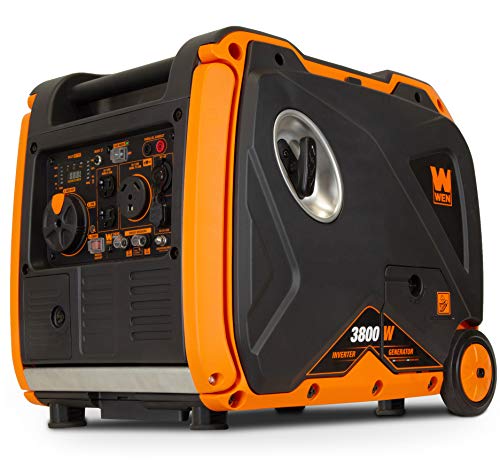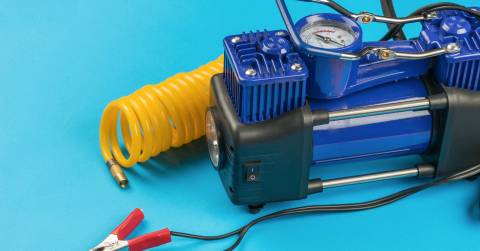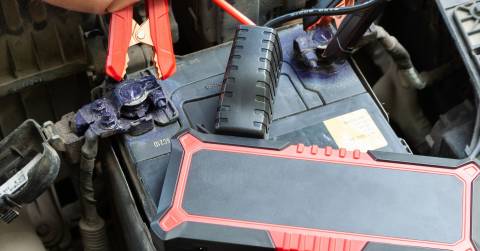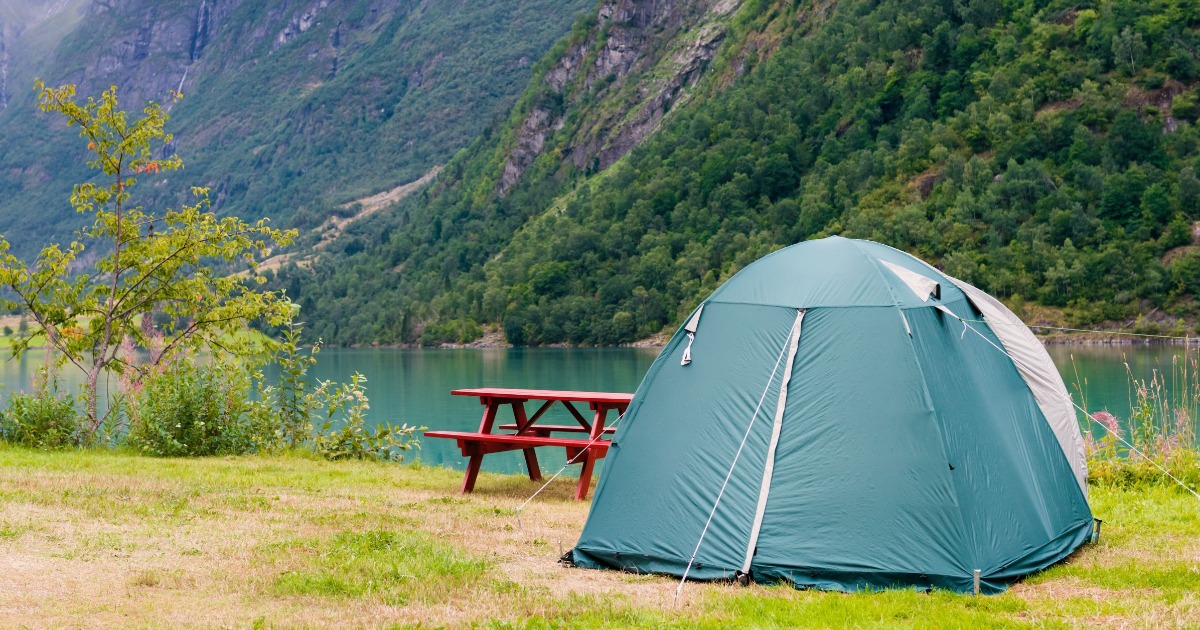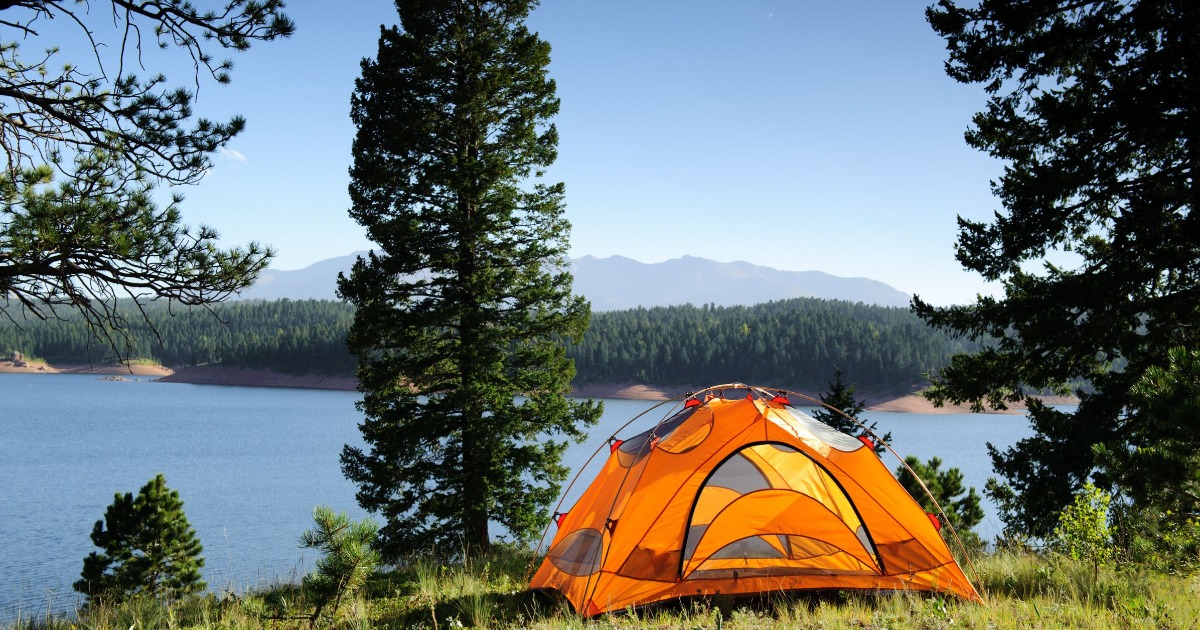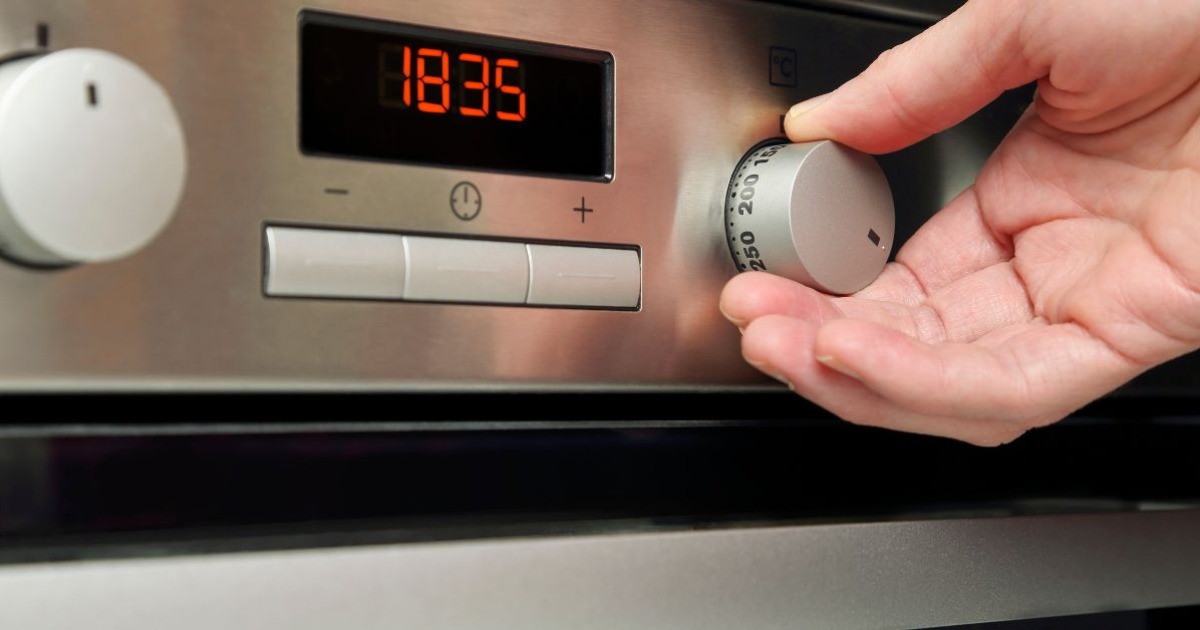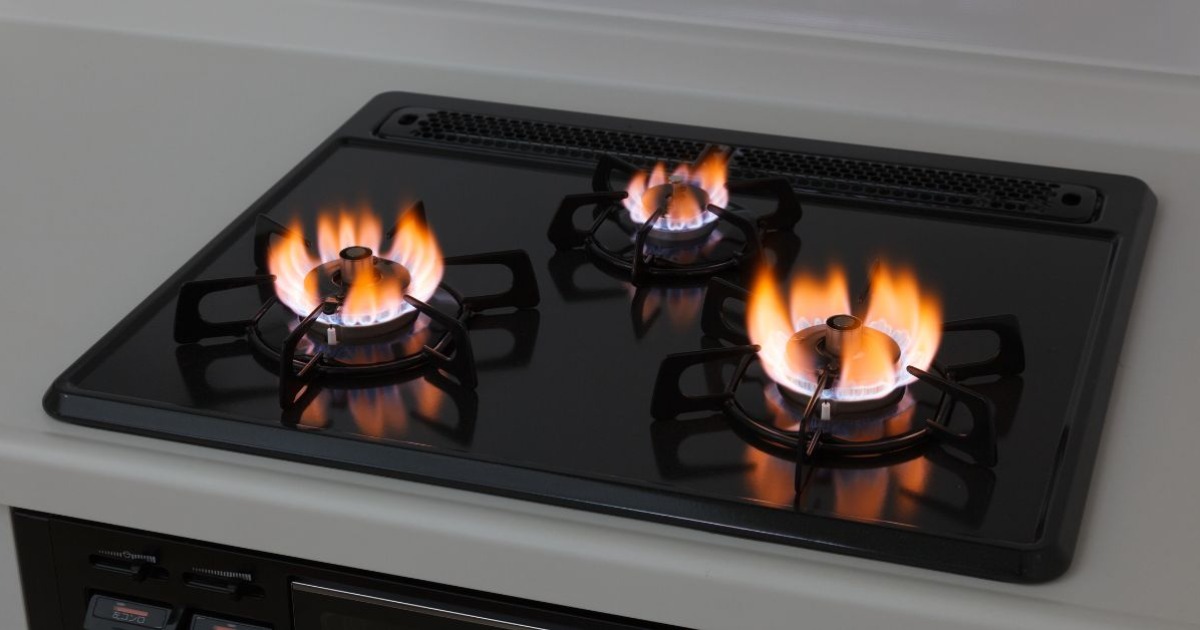The Most Fuel Efficient Generator For 2024
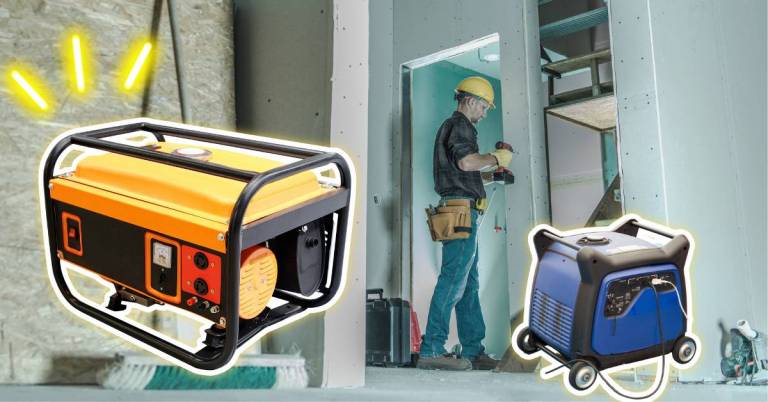
Our Top Picks
1. Best Overall: DuroMax XP12000EH Generator
Be ready for anything with the DuroMax XP12000EH Portable Dual Fuel 12,000 Watt Generator. Nicknamed "BEAST," the device offers the performance typically found in home stand-by but in a portable package. Read Review
2. Best For Price: DuroMax XP8500EH Dual Fuel Portable Generator
With 8,500 watts starting and 7,000 watts running, this unit can handle heavy loads, from lights and refrigerators to home air conditioners and high-amperage power tools. Read Review
3. Best Quality: Westinghouse 4500 Watt Super Quiet Dual Fuel Portable Inverter Generator
Comes with a 5-20R 120V duplex household socket, an RV-ready TT-30R 30amp socket, and two USB sockets - this is an excellent choice for caravan or home use - enough power to power all your essentials. Read Review
4. Best Versatile: Champion Power Equipment 200988 4500-Watt Dual Fuel RV Ready Portable Inverter Generator
Our 4500-watt inverter generator is dual fuel allowing the 212cc engine to run on gasoline or propane. You can enjoy quiet 61 dBA for up to 14 hours on gasoline or up to 21 hours on a 20 lb propane tank and boost your performance with the optional Parallel Kit. Read Review
Are you looking for a fuel-efficient generator? Several different generators fall into several categories. They can be divided by price point or fuel. Natural gas, propane, diesel, and gasoline are the most common powers. Generator fuel efficiency is usually rated in terms of gallons per hour consumed at a specific functional level.
Propane is helpful, especially in a national or state forest. State forests and most other public areas have stringent regulations about the types of engines you can use on their property. Some of them have emissions standards, but usually, they try to prevent wildfires. That means they may ban gasoline engines outright or require a spark arrestor to keep the engine from catching fire. Propane engines are generally permitted. Therefore, a fuel generator may be the best choice for those who plan to use it in national parks.
Before making our recommendations, our specialists spend substantial time researching and analyzing customer feedback. Then we found the Most Fuel Efficient Generator is the DuroMax XP12000EH Generator. It is the most excellent choice for its high quality. If you're looking for another one, consider DuroMax XP8500EH Dual Fuel Portable Generator.
RELATED: We've researched the 10 smallest power generators of 2024 and compiled a guide to help you make the right choice for your needs.
Our Top Picks
It features an easy-to-use keyless electric start and is also available with an optional recoil starter. This power generator is powered by a 457cc DuroMax OHV engine that powers a fully charged power panel. It enables the user to reach a maximum output of 12,000 watts. Protect your investment by automatically shutting down the generator when low oil levels are detected.
This device is a bit expensive.
The XP12000EH offers power and versatility, making it ideal for powering your home's most essential appliances and even your central air conditioning system during a power outage, storm, or emergency. You can also easily take this device to work or camp.
Moreover, this dual-fuel generator runs on gasoline or propane, giving you the freedom and flexibility to choose your fuel. While gasoline is a proven fuel choice, liquid propane lasts longer, costs less, lasts longer, and won't clog or damage carburetors. The panel also features a voltmeter, circuit breaker, oil level gauge, idle speed control, and DuroMax's unique MX2 switch that doubles your 120-volt amperage for heavy loads.
A 16hp OHV 420cc Duromax engine powers the XP8500EH. It can run on propane or gasoline, allowing freedom and flexibility in fuel choice. This device has EPA and CARB-approved use. This generator is durable and portable.
This device is loud and can make you frustrated.
You can get ready for anything with the DuroMax XP8500EH generator. This dual-fuel unit runs on gasoline or liquid propane and can be used anywhere portable power is needed. You can also transport easily over any terrain with the XP8500EH generator to keep you going.
In addition, with this product, you can get maximum power from any 120-volt outlet with DuroMax MX2 technology. You can also choose to run the generator on 120V and 240V or at full power on 120V only.
It has 4500 peak watts and 3700 nominal watts with less than 3% THD Remote start with an included key fob, electric, and pull start. Rotating digital display shows fuel level, output power, remaining run time, output voltage, and run time Very quiet and very fuel efficient: only 52 decibels noise level and up to 18 hours of run time with a 3.4-gallon fuel tank Features "Economy Mode" for maximum fuel efficiency.
This product doesn't have wheels.
The Westinghouse iGen4500DF Dual Fuel Inverter Generator is a premium power solution for your portable power needs, whether camping or on the go. Perfect for entertaining or as emergency backup power, this generator features a TT-30R RV Ready outlet, two 20A household outlets, and a built-in USB port.
Furthermore, it's designed for maximum fuel efficiency with variable engine speed to produce only the power you need at any given time and run for up to 18 hours on the 3.4-gallon tank. As a dual-fuel generator, the iGen4500DF runs on gasoline or propane and can be used anywhere.

Best Versatile
Champion Power Equipment 200988 4500-Watt Dual Fuel RV Ready Portable Inverter Generator
Gasoline or propane out of the box to run your 4500W portable generator The unit holds 0.6 liters of oil (including 10W-30 oil) and features a low oil shutoff sensor It has a quick touch panel so you can access all controls in one place 61 decibels ideal for RV, tailgate, your next project, or home backup power
This model can be underpowered in some circumstances.
The Champion Power Equipment 200988 4500 Watt Inverter Generator is the perfect combination of versatility and convenience, whether you need power for your home, RV, or project. The convenient electric start includes the battery, and Cold Start technology provides quick starts in cold weather.
Besides, you can confidently connect your sensitive electronics, knowing that this inverter produces only clean power. This inverter is designed with a low oil shut-off sensor and has a 0.6-liter oil capacity. Run your dual fuel on gasoline or propane out of the box, and easily switch fuels with a quick turn of the fuel selector switch.
The spark arrestor provided is permitted for legal use in national parks and campgrounds. 212cc four-stroke OHV engine delivers 3800 peak watts and 3400 nominal watts for up to 8.5 hours of half-load runtime Fuel cutoff maximizes alternator life by using up the remaining fuel in the carburetor before it shuts off. Generates clean electricity to prevent damage to sensitive electronics such as smartphones, tablets, and laptops.
This device is difficult to run and takes time to start.
WEN's 3,800-watt inverter generator produces clean energy without the spikes and dips and all the noise of a regular generator. Our air-cooled 212cc four-stroke OHV engine runs at 57 decibels at quarter load, about as quiet as a window air conditioner or general conversation.
Plus, the WEN 3800W variable frequency generator is also equipped with a fuel cut-off device. This feature shuts off fuel flow, allowing the generator to use up any remaining fuel in the carburetor before shutting off automatically. This helps eliminate deposits and clogging caused by stale fuel in the carburetor, minimizing maintenance and extending unit life.
Comes with an advanced digital hybrid design 50% quieter and 20% lighter than conventional Champion 3500W alternators The eco-mode feature saves fuel and extends engine life The 50 amp RV outlet allows you to increase performance by connecting up to two variable frequency generators of 3000 watts or more.
It can be broken, so you need to use it carefully.
Quiet and lightweight, this open-frame inverter generator is an excellent addition to your RV and a cost-effective power solution. You can run your dual-fuel genset on gasoline or propane and change fuel easily with a quick turn of the fuel selector.
Besides, it produces 3825 watts starting and 3150 watts running and will run at 25% load for 14 hours when using a 20lb propane tank. This inverter has a 0.6-liter oil capacity and a low oil shut-off sensor and operates at 64 dBA from 23 feet away, slightly louder than everyday speech.

The intuitive control panel features one 5-20R 120V duplex outlet. It features a push-button electric start and a wireless key fob for easy ignition. This product has a retractable handle and solid, never-flat wheels for easy portability. Comes with an RV Ready TT-30R 30A outlet that conveniently plugs into your caravan to keep the air conditioner and all your travel essentials running throughout the day
This product can have the smell of gas.
Westinghouse's powerful WGen3600DF is a portable generator designed to provide you with reliable power when you need it most, whether at home or on the go. The generator is dual-fuel capable, offering versatility by running on natural gas or propane (LPG).
Furthermore, the WGen3600DF is powered by a 212cc Westinghouse OHV engine with cast iron sleeves for long engine life, while safety features like low oil shutoff, overload protection, and GFCI output ensure longevity. It features a push-button electric start and a wireless key fob for easy ignition and has a retractable handle and solid and never-flat wheels for easy portability.
More To Consider


What to Look For in a most fuel efficient generator?
Sometimes, purchasing a product can draw some difficulties for shoppers, and that's why you shouldn't waste your time on unreliable sources of information. A variety of variables impact the most fuel efficient generator, along with all of the ones listed below. The formative assessment varies depending on the types and functions of the product.
We will give you some purchase guides to help you with your selection proc in the following sectors. Continue reading to learn about what you should look for when looking for the most fuel efficient generator:
Automatic Start
Fuel Source
The majority of portable generators run on gasoline and can generally keep fridges and lights running for several hours. These generators can't be relied upon for long-term power backups, such as when there is no electricity for several days.
Propane and natural gas are used more often for large home-standby generators. These fuels can be used for larger home standby generators as they are cleaner-burning and offer on-demand power.
Solar or battery-powered power sources are an alternative to traditional fuel-powered generators. These machines have different capabilities, and their run time can vary widely. However, they might be the best match for you if your power requirements are less than minimal. They are typically used for camping only, not home.
Wattage
However, this number does not represent the entire picture. Wattage is made up of three parts: power needed to turn on an appliance and power required to maintain it running. It also includes power necessary to sustain a power surge, which is when regular juice returns to normal and all appliances start to work again. Many appliances use more power for startup than their run energy consumption. You could overload your generator when you turn on appliances and other devices. If the generator can't provide enough power, it could overload. You need to know how many watts your generator can generate, depending on whether it is powering just one item or the whole house.
An increase in generator costs is generally associated with a higher wattage. Most people agree that it's better to have enough power than not to be able to run your fridge or keep cool by a fan.
Warranties
Certain warranties may also include travel expenses for technicians to visit the generator and fix it. However, this depends on which manufacturer you are using.
Type
Size
Be aware that the clearance between your home and generator may be determined by local codes or model specifications. A small generator may require only 18 inches of clearance.
RELATED: The market is filled with various models of smallest honda generator. But, picking the right one can be tricky. This is why you need to know what to look for when buying one.
FAQs
Can I Use The Generator During Inclement Weather?
Although you can use your generator in any weather or temperature, protect it from the elements whenever it is not being used to stop it from shorting out and rusting. It is not recommended to run the generator indoors.
How Do You Safely Run A Home Generator?
A whole-home generator or standby generator must be connected to a switch. This disconnects your circuit panel and the electrical grid, allowing power to flow through the circuits from the generator.
You must manually start the power transfer for portable generators. These products have different safety requirements.
What Regular Maintenance Should Be Performed On A Home Generator?
You should get basic maintenance information from the manufacturer of any generator that you buy. However, most generator models will work fine if you follow these guidelines.
Run the generator at least 30 minutes per month or perform a weekly self test
When storing a gasoline-powered generator, add fuel stabilizer.
Regular oil changes are a must for your generator.
Where Is The Best Place To Put Your Home Generator?
Natural gas generators do not produce as much fumes than natural gas ranges. Gasoline-powered generators can produce carbon monoxide exhaust fumes, which is why it's important to select the ideal location. These are the reasons why utility companies and local codes often have specific requirements for placement.
A generator should generally be located at least 5ft from any windows or doors. While some generators are able to be mounted as close as 18inches from the house, it is still important that the generator is at least 5ft away from any air intake areas on the property.
It is not advisable to use portable generators in an indoor environment, such as a garage. This type of generator is best placed outdoors, away from windows and doors.
Does The Portable Generator Need To Be Grounded?
Yes. It is important that the generator be correctly grounded in order to protect your safety. The generator must be grounded properly to avoid electrocution. Grounding is a subject matter that must be adhered to by all authorities, federal and state.
Can I Vent The Exhaust Out Of An Enclosed Area?
No. The generator should not be used in enclosed areas or homes. The portable generators can only be run outdoors where there is adequate ventilation. As with all gasoline engines exhaust, generators contain poisonous carbon monoxide.
Generally, new information is continuously included into of most fuel efficient generator. Visit our sites for revisions and improvements regularly.
You now have a far better knowledge of how to purchase the most fuel efficient generator on the market. Hopefully, we've supplied you with enough information to help you make an informed decision. We'll see you in the following article.
READ NEXT: The 7 Best Office Humidifier Of 2024, Tested By CampFireHQ
 By, Katie Finn
By, Katie Finn



